A flash essay is short—less than 750 words. Often one image or word carries special weight, and the best ones are known for a turn at the end. Here are 14 that I carved from a long narrative I wrote in my journal.
Helene
The hurricane barreled past in the wee hours of morning. I was sleeping on a sofa in our large kitchen with the baby in a bassinet. I awoke to howling wind. No digital clock on the stove meant no power. I checked my cell phone. 2:30. Yes, this was when the hurricane was predicted. It had arrived without rain. Without hail. Just wind. I clicked on a flashlight, speed-changed the baby’s diaper, and shook up a quick bottle. Then I opened the door and scurried across the breezeway into the main house, where Raven was sleeping. This house was built in 1850, many generations ago. I lay in bed listening. Throughout the house old windows rattled in their frames. A piece of tin kept flapping. Some kind of insect in a nearby tree began to shrill.
Path
The baby lay on the bed between Raven and me. She was two months old and this was her second hurricane. I asked Raven again about the storm’s path. He had checked the weather just before bed. The last he’d seen, he told me, speaking through the howling dark, the hurricane would come ashore around Perry and travel up I-75 toward Atlanta, two hours west. I thought of my friends in other parts. How fast is the storm moving? I asked Raven. About 30 miles an hour, he said. Then it will be past us soon, I said.
I had a strange feeling, however. People are dying right now.
Maybe not, he said. But you know how quickly a path can change.
Linepeople
When the baby stirred at sunrise, I hustled to the kitchen for a bottle. Raven went out to look around. I flash-warmed water in a pan, added a scoop of formula. I boiled more water and made cowboy coffee. Outside, tree branches littered the ground. Raven came back. It’s the worst storm we’ve had, he said. A large chinaberry in front of the barn had fallen, tearing out part of the barn wall and floor. A large oak near our mailbox took out power lines. Trees went down all along the road, some on the lines.
About 9 I saw our neighbor pull out of his driveway. The road was clear between us. Raven walked out to meet him. Russell is a mechanic with the state highway department, and he would need to get out. Any of us might need to get out.
I dressed in work clothes and strapped the baby to me in a sling. Russell and Raven worked the chainsaws. Russell’s wife Wendy pulled logs off the road with their tractor. Our farmhand Joshua and I dragged branches and trimmings to roadbanks. Russell, who has worked as a lineman, untangled trees from electric lines, working carefully, strategically, leaping away from tension. I stayed far away, protecting the baby with one hand and pulling limbs with the other.
By early afternoon we reached the pavement, Old River Road.
Over the next two weeks I saw hundreds of linemen at work and a couple of them were women. So we really should be saying linepeople.
The Oak
Three houses are on our road. An elderly woman lives in the third. The houses were all standing. Trees were down. Trees were leaning. Large branches had been ripped from trees. Electric wires were down. The fiber wire was down. Two poles were down. A landmark oak in front of our neighbor’s house was down. When I say landmark I mean over five feet across. Lots of things lived in it.
Traveling Together
On Old River Road we came upon two neighbors clearing a large oak that blocked both lanes. A caravan of cars pulled up on the other side. I walked around to talk to them.
Y’all came in from Cowford? I asked the driver. He had his phone out and was making a video of the situation. Two other vehicles parked back a hundred feet but I could tell they were all together.
We came from Jesup, he said.
This road is cleared all the way to Jesup? That’s forty miles away.
There are trees in the road but you can get around them, he said.
Where y’all headed?
Atlanta.
I raised both eyebrows. Atlanta was four hours on a good day.
Can we make it through this way? he asked.
Myself, I would never attempt to get through Old River Road after a Category 4 hurricane. Not after seeing what I’d seen.
What were you doing in Jesup? I asked the man. I’m not nosy, just curious.
Family reunion, he said. One cut very short.
Sorry to hear it. I’m sorry to hear about anything that separates people. I believe in traveling together. I believe in neighborliness.
When I turned away I saw the man look me up and down. I was smeared with pine sap and dirt, my hair had blown over the place, hurricane leaves and twigs snagged in it. I had a tiny baby strapped to me. I called to Russell, who came over. These folks are from Atlanta, I said. How would you tell them to get home?
In the end the caravaners turned around to connect to the nearest state highway, which would take them to U.S. 1, four-lane to the interstate. The trip might take a while but they could get home.
Trapped
Abe had no way to get in and out of his place, all his vehicles trapped by downed trees. Two large pines smashed into his dining room, one limb jabbing through the ceiling.
Again the men sawed and the women trailed brush and logs. Once Raven’s chainsaw stuck in a log and Russell came over to free it, then his chainsaw stuck. They had to winch the log up with a tractor.
I went home for food. Raven needed to eat. I made him five tacos and put them in a bowl with a cloth over the top. I put the bowl in a basket along with a bag of chips, trail mix, a couple of seltzers. Raven stopped and ate, and I repacked the basket and set it on the porch. When I went back, the dog Ringo had finished the tacos.
Burger
Sometime in the afternoon we left. We rode the long way home.
Trees on cars. Trees on houses. Trees on barns and outbuildings. Trees on roads. Trees on the ground. Chicken houses on the ground. Roofs on the ground. Hundreds of electric poles snapped in pieces. Trees on lines. Lines on the ground.
In the section of Highway 56 where Ben and Sandra live, one house had multiple trees across it. An immense pine had fallen across another home, splitting the house in half. For a half-mile every home on the west side of the road sustained major damage—in many cases a total loss. The homes on the east side, where Ben and Sandra live, untouched.
We came upon my friend Wes. He had cooked up a bunch of hotdogs and hamburgers, packed them up with a bag of buns and condiments, and was out feeding people. He gave us a burger.
Damn, that burger. That amazing burger. That man Wes. Damn these big hearts. Just thinking about that damn burger I start to cry.
Water
On the fourth day Russell comes with his bigger generator. It operates 220 electric. Ours will only run a 110 cord. Russell and Raven hook a wire from the well to the generator. The animal tanks begin to refill. I refill all the jugs in the kitchen, then I fill pitchers and soup pots and the canner and all the large fermentation crocks and the tea kettles. Outside, Raven overflows buckets and barrels. The baby is sleeping, so I run to the tub, undress, and jump in. Water surges from the faucet, cold and clean.
Hurricane Report
A friend stopped by to talk. I asked him how his old longleaf pines had fared. “I don’t want to talk about it,” he said.
“I’m sorry,” said. I zipped my mouth shut and locked the sadness into my eyes.
“But I’ve decided to build a log cabin,” he said.
“Out of the pines?”
“Yes!” He started to describe it, dimensions and roofline and porch. A gleam began to build in his eyes.
The idea obsessed me. What other positive things can be made from all this destruction?
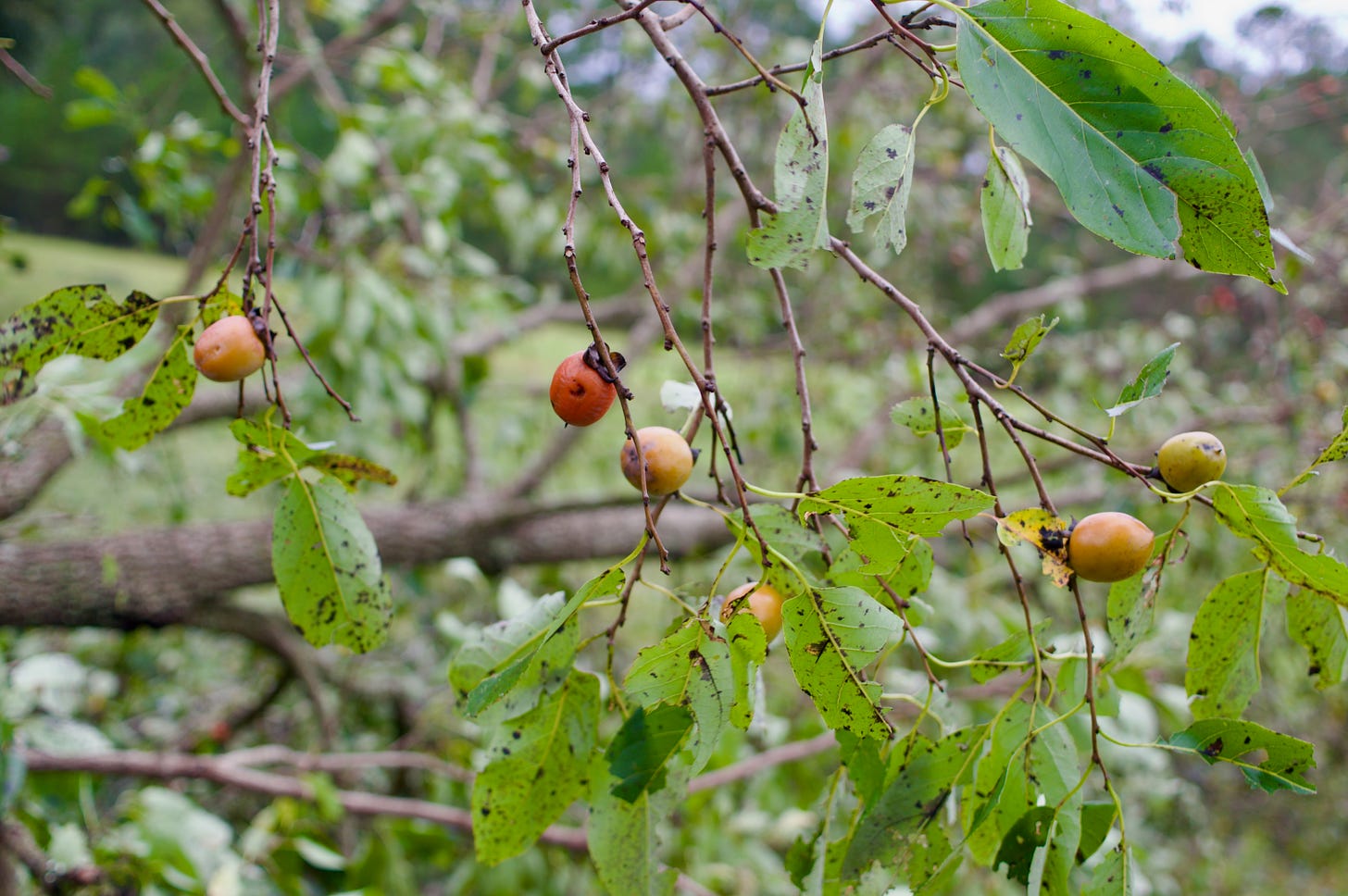
Social Media
I wish I could say I missed it.
This Beauty I Live In
A hummingbird lands on a leafless vine when I come outside with my coffee, and she chatters at me. Morning sun touches the pines to the west. A solitary ibis rises out of the marsh like a ray of sun.
The Baby
The baby had a diaper rash. We tried everything anybody suggested—Desitin, cornstarch, Manuka honey, bedsore cream.
No matter what we did, the rash worsened. By Sunday, two days after the hurricane, the baby was screaming every time she peed. Monday early, no way to place a call, we drove toward her doctor’s office in Vidalia. That’s twenty-something miles of catastrophe.
A few gas stations were open in Vidalia and cars lined the road shoulders, waiting their turn. Officers directed traffic at the pumps. Some of the traffic lights were working.
The roof was off the doctor’s office. To their credit, staff had set up two tents outside in order to see patients. Soon a staff-person was at the car, and I unwrapped the baby.
I was crying. I always cry when I finally get help for a problem that is bigger than I.
The tech went away and came back with something called Butt Paste. She slipped on gloves and began to apply the paste. Another tech rushed up with a syringe and had it stuck in the baby’s mouth before I knew what was happening. “What is that?” I cried.
“Infant Tylenol.”
I was still weeping. “Okay,” I said. I could see their hearts flying out toward me.
“I’m sorry,” I said. “It’s just everything.”
Marsh
Thank heavens for the marsh. It has water in it. All Raven does is take down a section of fence, and the cows have access to water. He moves the horses to the north pasture with the cows. They seem happy in the large pasture, with the mule, and they make me happy when I look out at them.
Light
The baby begins to make noises in the night. The sounds that precede crying are little barking coughs. I like to get up when the barks begin, before the cries. I have a candle and a pack of matches ready. I light the candle. I remove her diaper and wipe her down, then rewrap her. I have heated a kettle of water and poured it into a thermos. I put a scoop of formula in a 2-ounce bottle, add an inch of hot water, then fill it with water at room temperature. I hold the baby in the light of the candle, watching her nurse.
This goes on for a week.
On the eighth day the rural electric vehicles are at Marvin Methodist, where the old-growth slash pine in the churchyard had its top torn out. That’s ten miles away. On the ninth day Russell drives Old River and counts the electric poles that need to be replaced. He loses count. On Day 10 I see a rural electric pickup surveying our road. Day 11 a bucket truck is at our driveway, replacing a pole.
Eleven a.m. on the eleventh day the lights blaze on.
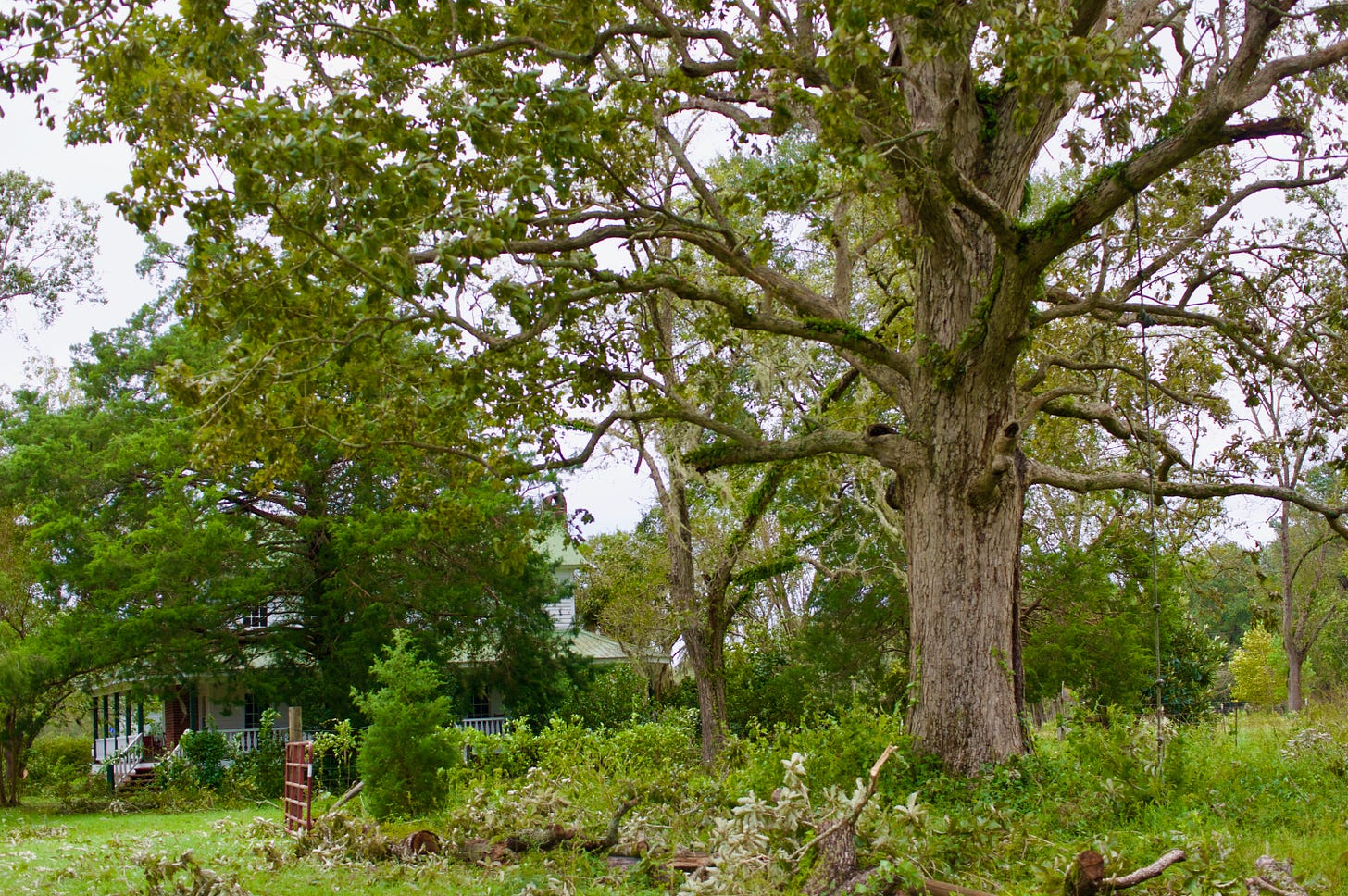
Back to Regular Life
Two Weeks to Sign Up for the Metaphor Workshop
I’ll be teaching a super-intensive 2-hour-22-minute workshop on metaphor-making for writers on Saturday, Nov. 2, 2024 from 10-12:22 am Eastern Time. The cost is $22. Go away with handouts, a list of metaphors you want to work with, and new tricks of the trade. Sign up here.
Your DNA Story
I’m hoping we have enough amazing DNA stories to fill an anthology. I’ve received three so far. The deadline for those is Friday, Nov. 1. Send them to me by email at wildfire1491@yahoo.com. You can find more info here.
E-book Sale
You can nab the e-book of Craft & Current: A Manual for Magical Writing for $4.99 at the moment. I’m not sure how long this sale will last. That is half the regular price. You purchase on my website, and the order is filled by BookFunnel. Get your copy here.
Write a Flash Essay in a Few Hours With Me
I’m teaching a flash-writing workshop on Sunday, Nov. 17 from 12-3 pm Eastern Time. The cost is $55. You leave with a sheaf of handouts and a brand-new flash essay. Work with me here.



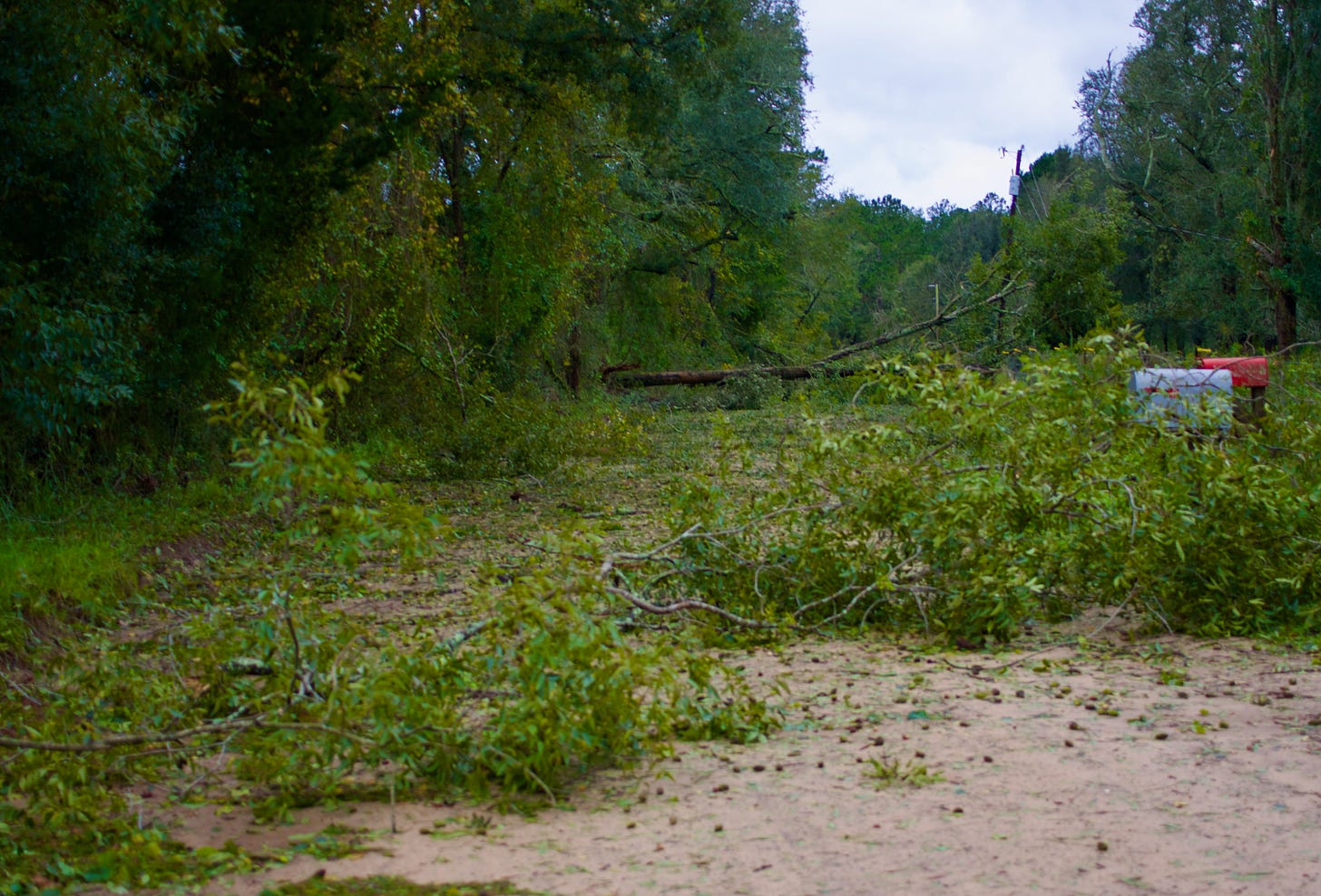
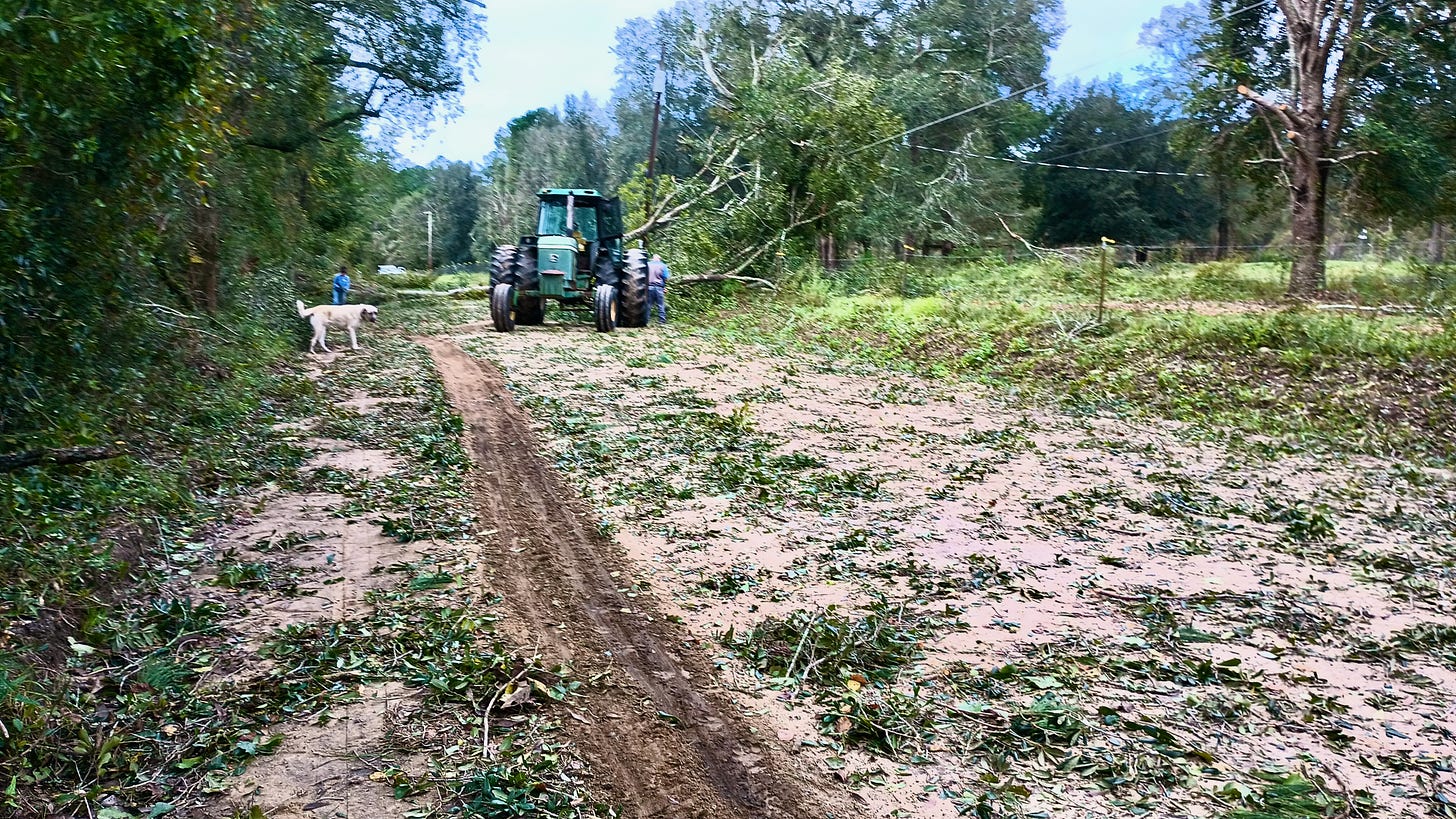
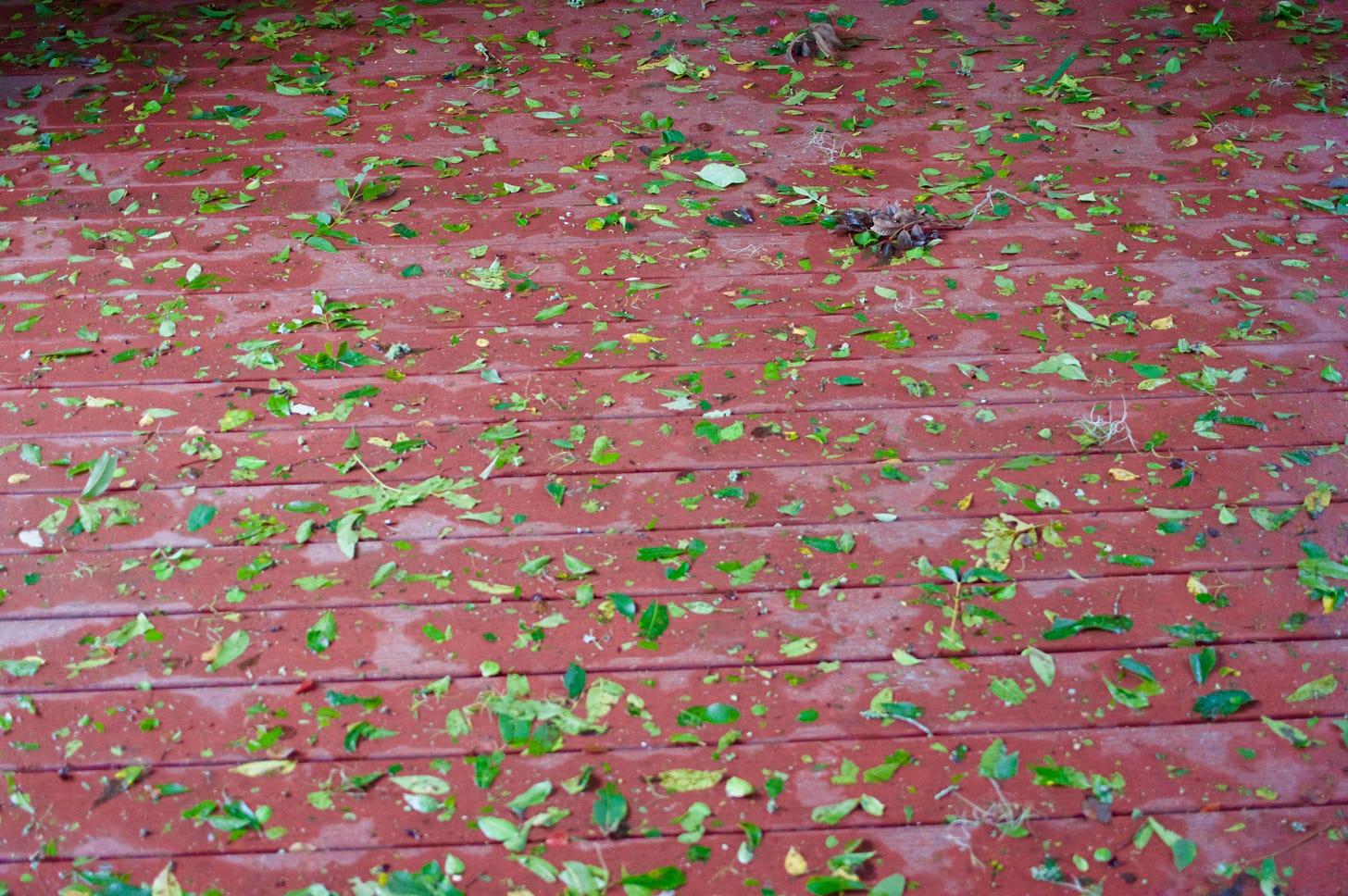
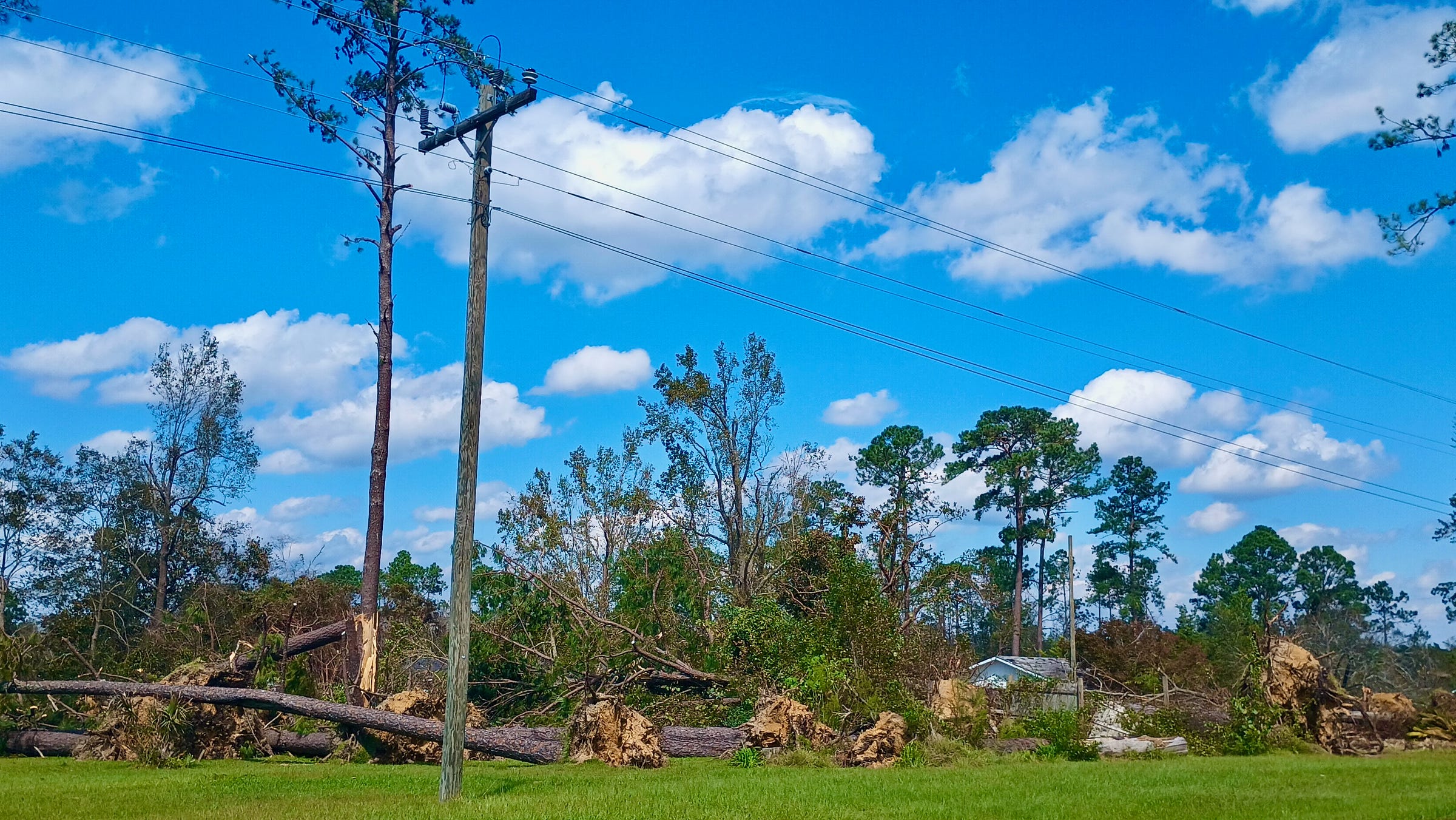
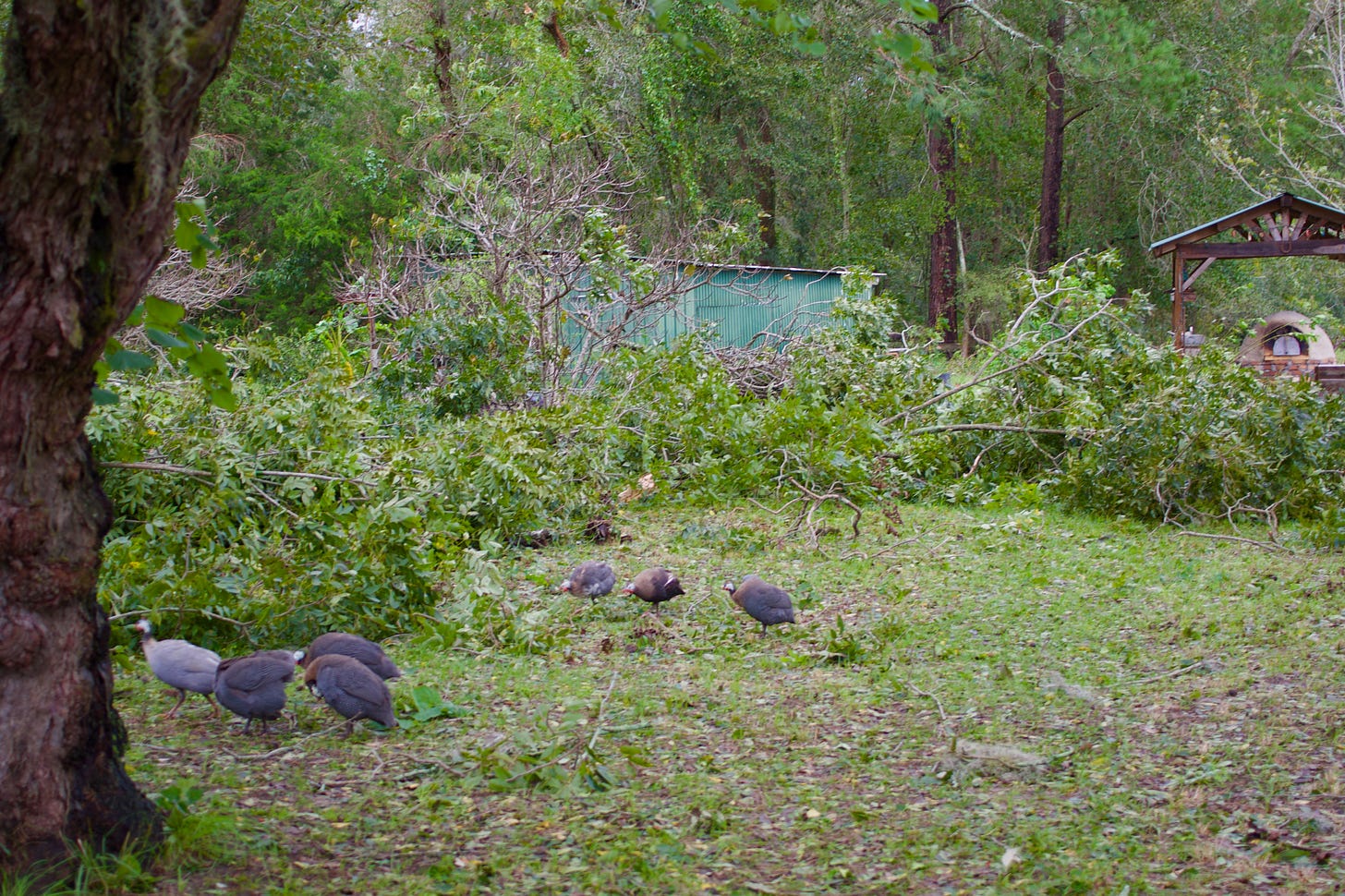
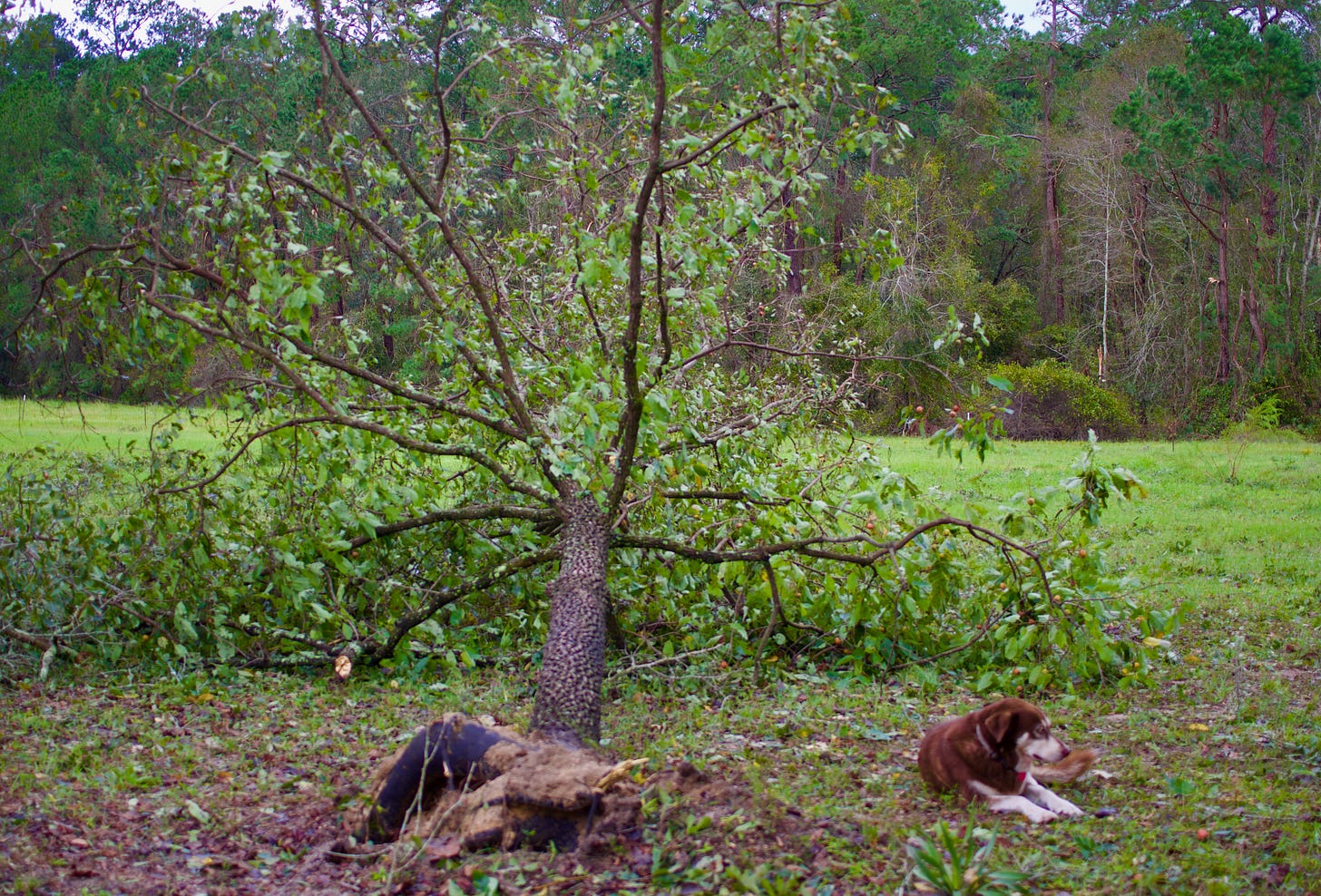
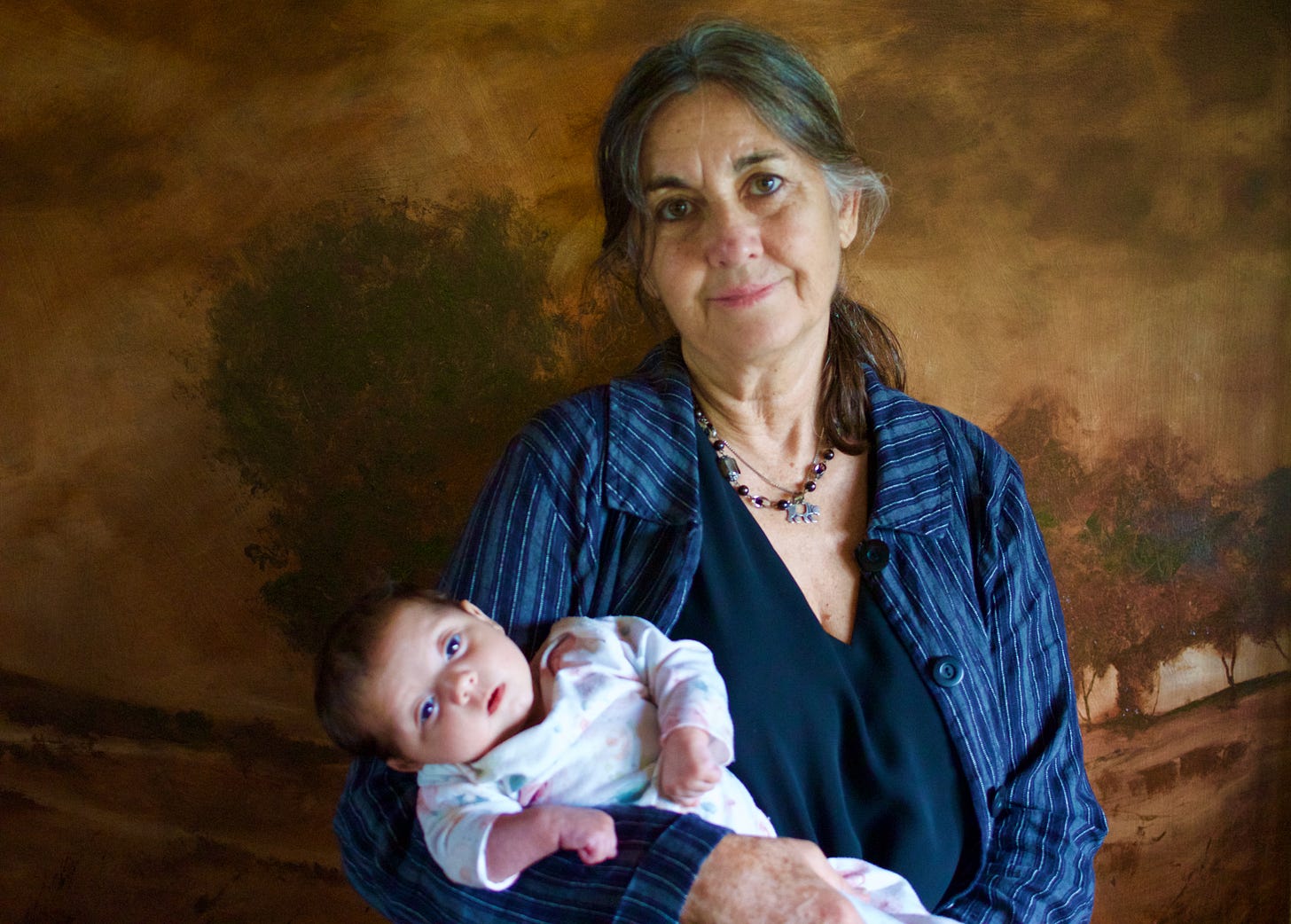
Your amazing capacity for love, strength and courage are an inspiration to us all! Thank you for your essays which give us an insight into the devastation caused by this terrible storm. In the north, we saw some photos and read the reports, but without the personal stories of living through this tragedy. Baby Fawn is so lucky to have you by her side and willing to be her guiding light. Sending you and your family good karma and shining light , as you recover from this trauma. So thankful for your good neighbors, hard working utility workers, for you home being intact and your animals being safe. Caring hugs!🥰🥰🙏🙏
Thank you for this series of essays. They are more powerful together, or each on their own, than one continuous essay.